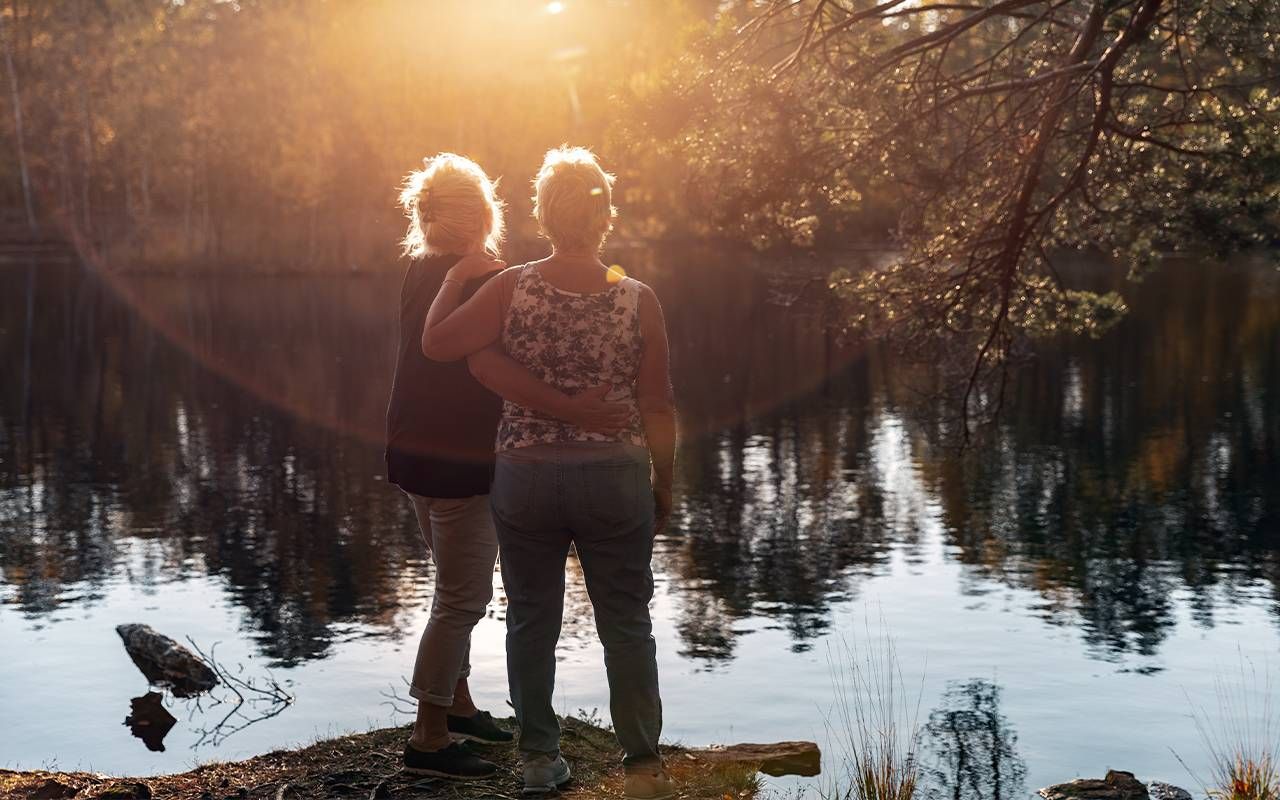How is Caregiving Different for Members of the LGBTQ+ Community?
Over half of LGBTQ+ adults are concerned about mistreatment in long-term care because of their sexuality

"How is caregiving different for members of the LGBTQ+ community?" That's a question I've asked audiences over the years at national conferences where I've had the opportunity to speak on this subject. Many people aren't sure how to answer this question, or if there are differences. As you speak with members of the LGBTQ+ community and consider historical events during their lifetime, these differences become more apparent.
June is Pride Month, also called Gay Pride, celebrated in the United States and elsewhere around the world. Pride Month commemorates years of struggle for civil rights, and the ongoing pursuit of equal justice under the law, as well as the accomplishments of lesbian, gay, bisexual, transgender and queer (LGBTQ+) individuals. For gay couples in the United States, the option to marry only became legal on a federal level in 2015. Marriage has significant implications for caregivers in terms of benefits like Family Medical Leave Act (FMLA) to take time off from work to care for a loved one, and spousal benefits through Social Security. Many couples who have been together for decades, unmarried, may not have considered how marriage can affect caregiving and financial survivorship as we age.
The U.S. census has never measured how many LGBTQ+ people live in America, but some reports estimate there will be roughly 7 million LGBTQ+ adults over age 50 by 2030. LGBTQ+ seniors and caregivers face unique obstacles and issues because they are twice as likely to age alone and four times less likely to have children. As a result, LGBTQ+ elders are more likely to need long-term care.
Yet according to a recent AARP survey, over 60% of older LGBTQ+ adults are concerned about mistreatment in long-term care settings because of their sexuality. Since the pandemic, staffing shortages have been widespread across long-term care facilities, which have furthered concerns about finding facilities welcoming to LGBTQ+ seniors.
Many people don't realize that LGBTQ+ seniors become caregivers more often than their heterosexual counterparts, including LGBTQ+ seniors themselves. Since LGBTQ+ adults are less likely to have children, they more often assume caregiving responsibilities for aging parents and for other "chosen family." Yet, for some members of the LGBTQ+ community, caregiving can feel especially isolating. In our society, the act of providing care is still very much considered a gendered responsibility.
Many caregiver programs target women, who take on the majority of caregiving responsibilities as we age according to the National Alliance for Caregiving (NAC) and AARP report "Caregiving in the U.S." A Google Image search using the term "caregiver" reflects this notion, with very few men represented. Even fewer images reflect same-sex couples when it comes to caregiving. If you think about the advertising images used for health care and long-term care, it is rare to see the LGBTQ+ community represented, which underscores a feeling of being invisible for many LGBTQ+ caregivers.
Each June, the WellMed Charitable Foundation provides its annual Pride of Caring series for LGBTQ+ caregivers and professionals serving them through its Caregiver Teleconnection. Now in its fifth year, the Pride of Caring is a unique program focused on a range of issues affecting LGBTQ+ caregivers, from care planning to end-of-life issues. Other organizations serving LGBTQ+ seniors and caregivers from across the country have participated in sharing their experiences, resources and strategies.
Bruce, a past participant, shared: "For the first time, I wasn't the only man in a caregiver support group, and the only gay person. At my community support group, I felt like if I shared what I was going through with my husband, I wasn't sure how people would react or respond. People don't realize that you're not only sharing what you're going through, but coming out to a bunch of strangers."
This is exactly why the Pride of Caring series was created – to give caregivers a supportive environment to discuss their lived experiences. Sharing and learning from others can make all the difference.
To register for upcoming sessions or to listen to recordings, visit www.caregiverteleconnection.org

The WellMed Charitable Foundation offers a variety of programs that directly serve older adults and their caregivers across Texas, New Mexico and Florida with a special emphasis on wellness, prevention and living with chronic illness. In addition, the foundation has contributed millions to non-profit partners who also serve this population.

